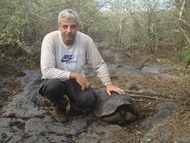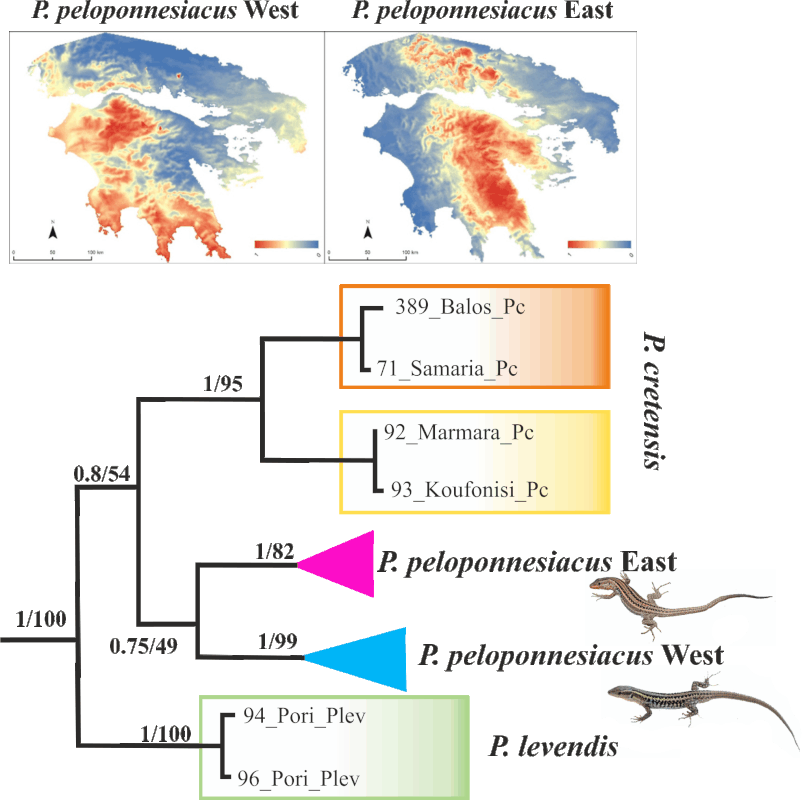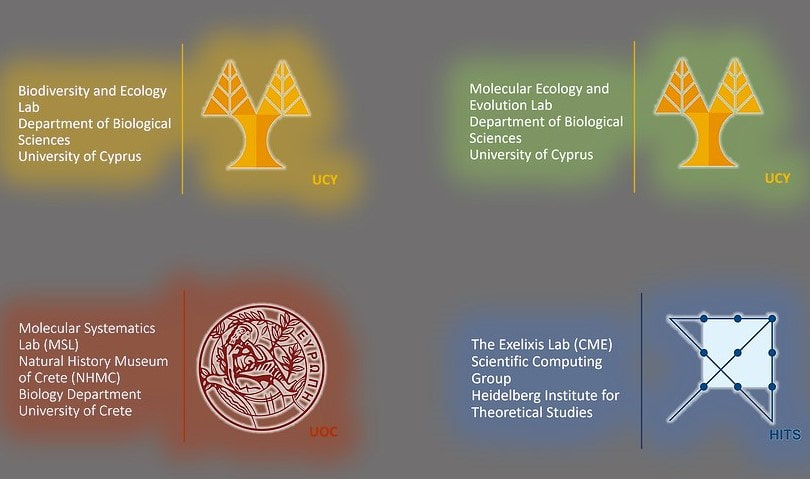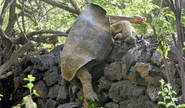
Prof. Dr. Nikos Poulakakis (PI).
I started at the University of Crete in 2009 as an Assistant Professor in the Department of Biology and PI of the Molecular Systematics Lab (MSL) of the Department of Biology and Natural History Museum of Crete (NHMC), University of Crete. Now, I am Professor at the same Department (since 2020), Director of the Natural History Museum of Crete (since 2018), and Group Leader (since 2021) of the Paleogenomics and Evolutionary Genetics (PEG) team (Ancient DNA lab) at the Institute of Molecular Biology and Biotechnology (IMBB), Foundation for Research and Technology Hellas (FORTH). My research group interests focus on phylogenetics, systematics, phylogeography, and species delimitation of animals. A large component of our work combines information from genetics, genomics, ecology, paleogeography to understand the origin and evolutionary history of populations and to inform conservation management. We use a wide variety of new genomic tools in our research, including RADseq for SNP-based phylogenetics, phylogeography and species delimitation. We are currently studying amphibians and reptiles, but we also have on-going projects focused on birds, mammals, land snails, arthropods, and plants inhabiting mainly the eastern Mediterranean region. Additionally, much of our research also focuses on the using techniques suitable for the extraction of ancient DNA from old museum specimens and fossil bones (i.e., giant Galapagos tortoises, and large mammals of the Mediterranean region, such as elephants, deer, hippos). |

Genetic material (aDNA) is extracted and analyzed from the extinct "pygmy" hippos of Cyprus By whole mitogenome hybridization capture and exhaustive high-throughput sequencing, we were able to investigate the molecular phylogeny and taxonomic status of the extinct Cypriot pygmy hippopotamus. Psonis N., Vassou D., Nicolaou L., Roussiakis S., Iliopoulos G., Poulakakis N., & Sfenthourakis S., 2021. "Mitochondrial sequences of the extinct Cypriot pygmy hippopotamus confirm its phylogenetic placement", Zoological Journal of the Linnean Society (in press). 
New species of Podarcis in Greece. Evidence of cryptic diversity in Podarcis peloponnesiacus and re-evaluation of its current taxonomy; insights from genetic, morphological, and ecological data Athina Kiourtsoglou,Antigoni Kaliontzopoulou,Dimitris Poursanidis,Daniel Jablonski,Petros Lymberakis,Nikos Poulakakis, https://doi.org/10.1111/jzs.12540 
Eco-evolutionary dynamics on Cyprus: a multitaxon approach to population differentiation within an isolated island The project aims to increase our understanding of eco-evolutionary processes under work on the long-isolated, environmentally diverse, and diversity-rich island of Cyprus. The studies of inter-island eco-evolutionary processes have been identified as high priority fields of research within the broad field of island biogeography. In addition, such information is necessary for building robust and dependable predictive models for the future of local biodiversity under climate change. Given that Cyprus is expected to become severely affected by the on-going climate change as higher temperatures, lower precipitation volumes and consequently desertification are threatening the eastern Mediterranean region, the proposed project is of high importance for biodiversity conservation. 
In death, Lonesome George reveals why giant tortoises live so long https://www.nature.com/articles/d41586-018-07614-4 https://www.nature.com/articles/d41586-018-07630-4 http://www.sciencemag.org/news/2018/12/famous-tortoise-lived-100-years-his-genome-may-reveal-how-he-did-it https://www.independent.co.uk/news/science/lonesome-george-giant-tortoise-galapagos-extinct-genome-dna-cancer-nature-study-a8664931.html 
|


